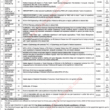According to an article by Daily Times, the real estate sector in Pakistan faced numerous challenges in 2023, including increasing inflation, political unrest, currency devaluation, high interest rates, and regulatory issues.
However, there is a glimmer of hope for the sector as some positive developments have been observed in the last three months.
Over the past five years, real estate investments from non-resident Pakistanis and construction projects have contributed to the sector’s growth.

However, the market experienced a correction due to factors such as a influx of investors from other industries, weak regulatory oversight, Ponzi schemes promising quick returns, and rising construction costs.
Moving forward, optimism is an essential aspect of the real estate sector’s growth in Pakistan. Many investors have historically made investments based on optimism, without conducting thorough analysis.
The expectation of lower interest rates in the first half of 2024 could provide a boost to the industry. This reduction in interest rates would make other industries more lucrative as well, potentially attracting investments away from real estate 1.
The decrease in investments by non-resident Pakistanis in the past 18 months is a significant concern. While some attribute it to political unrest, currency devaluation is considered a major factor. Many non-resident Pakistanis continue to support their families financially, but they are waiting for the currency to stabilize before reinvesting in real estate.
According to a report by The Express Tribune, a significant portion of overseas Pakistanis chose to send their funds through informal channels due to the availability of more favourable rupee-dollar exchange rates. The State Bank of Pakistan (SBP) reported a 10.4% decrease in remittances compared to $2.35 billion received during the same period last year 2.
It may take time to regain the previous investment levels, but the market is expected to reach 85-90% of its former levels within the next year or so 1.
Like Us on Facebook!
The expectation of lower interest rates in the first half of 2024 could provide a boost to the real estate industry in Pakistan. Lower interest rates would make it easier for people to obtain loans and mortgages, which would increase demand for real estate.
Subscribe Us on YouTube!
This could lead to an increase in property prices and a rise in construction activity.
However, it is important to note that interest rates are subject to change and can be influenced by a variety of factors, including inflation, economic growth, and government policies 2.
Inflation can have a significant impact on the real estate sector of Pakistan. As the cost of construction materials such as bricks, cement, and steel increases with inflation, the cost of building and maintaining properties also increases 3.
This can lead to a rise in property prices, making it difficult for potential buyers to afford homes and other real estate assets. Additionally, higher mortgage rates and increased building costs can exert downward pressure on real estate demand, further impacting the real estate sector 45.
However, it is worth noting that real estate values can also rise with inflation, as property prices tend to increase when inflation rises 4.
In summary, while inflation can lead to a rise in construction costs and property prices, it can also have a positive impact on real estate values.
According to report by Statista, the Real Estate market in Pakistan is expected to grow by 7.04% between 2024-2028 and could reach a market volume of US$2.77tn in 2028. This is a significant growth rate and could be attributed to various factors such as population growth, urbanization, and economic development.
Let’s now see how the real estate and construction industry has performed overall in couple of years. According to a report by Build Blogs, the construction industry of Pakistan is expected to grow by 6% this year and by 92% in the next seven years, with an average annual growth rate of 11.8%1.
The growth of the construction industry is attributed to the increasing number of mega-projects and works under the China Pakistan Economic Corridor (CPEC), as well as the government’s incentives and concessions to investors and aggressive private sector investment1.
The real estate sector is also expected to grow at an annual rate of 10% over the next five years, contributing to the construction industry, creating jobs, and boosting economic growth 2.
The report by NAPHDA states that the real estate activities in Pakistan posted a growth of 3.7% in FY2021, while the construction industry recorded a modest growth of 3.1% mainly due to an increase in general government spending3.
The report also mentions that the share of employment in the construction sector has increased from 8.0% in FY2019 to 9.5% in FY2021, while the share of real estate activities in private sector GFCF has registered a growth of 35% on account of higher growth of deflator3.
Overall, the growth of the construction industry and the real estate sector in Pakistan are interdependent and can have a positive impact on each other.














